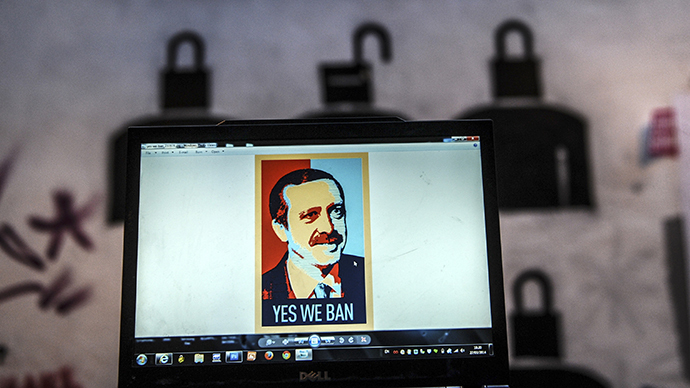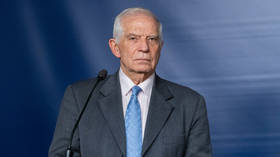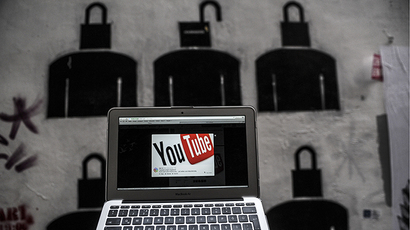Turkey’s Erdogan challenges constitutional court that lifted social media ban

Turkey’s Prime Minister Tayyip Erdogan made a formal complaint with the country’s constitutional court on Friday, calling secret recordings spread on social media a violation of his family’s rights.
Erdogan is challenging the court’s decision to lift a ban on Twitter and YouTube after the premier’s government blocked the social media sites on March 21 - during the lead-up to local elections - for not blocking secret audio recordings featuring him, family members, and figures of his inner circle allegedly dealing in corruption.
The Twitter block was lifted in early April after the constitutional court ruled that it violated freedom of expression in Turkey. Erdogan has aggressively opposed the decision, saying the judiciary is stocked with political critics. YouTube is still blocked in the country.
A senior official told Reuters that Erdogan appealed to the constitutional court through his lawyer, to protest the court’s decision to lift the blockade. The prime minister is seeking 50,000 lira (US$23,500) in compensation.
Erdogan says the online posting of the recordings is a violation of his family’s privacy and freedom of communication, claiming that the material leaked on the sites is part of a “villainous” plot hatched by his political rivals. He has denied allegations of corruption and says some of the recordings were manipulated in an effort to attack his leadership.
Wiretapped recordings began to appear online at the end of last year, following a political split between Erdogan and former ally and rival Fethullah Gulen – a powerful preacher and politician currently exiled in the US.
Among dozens of damaging revelations was a purported intelligence agency plan to stage a false flag attack on a Turkish monument in Syria, and a conversation between Erdogan and his family about millions of dollars in cash stashed in his house.
Turkish officials met with Twitter representatives in Ankara this week in an effort to resolve differences. The American company has said it will not open an office in Turkey, nor will it pay a Turkish tax, despite Erdogan's requests to do so, as RT has previously reported.
The Twitter and YouTube bans came amid a larger internet crackdown by Erdogan’s government days before local elections nationwide. The moves were denounced by foreign allies and human rights advocates.
Despite the allegations of impropriety shown in the recordings, and the social media curbs put in place, Erdogan’s Justice and Development Party (AKP) claimed a solid victory at the polls.














